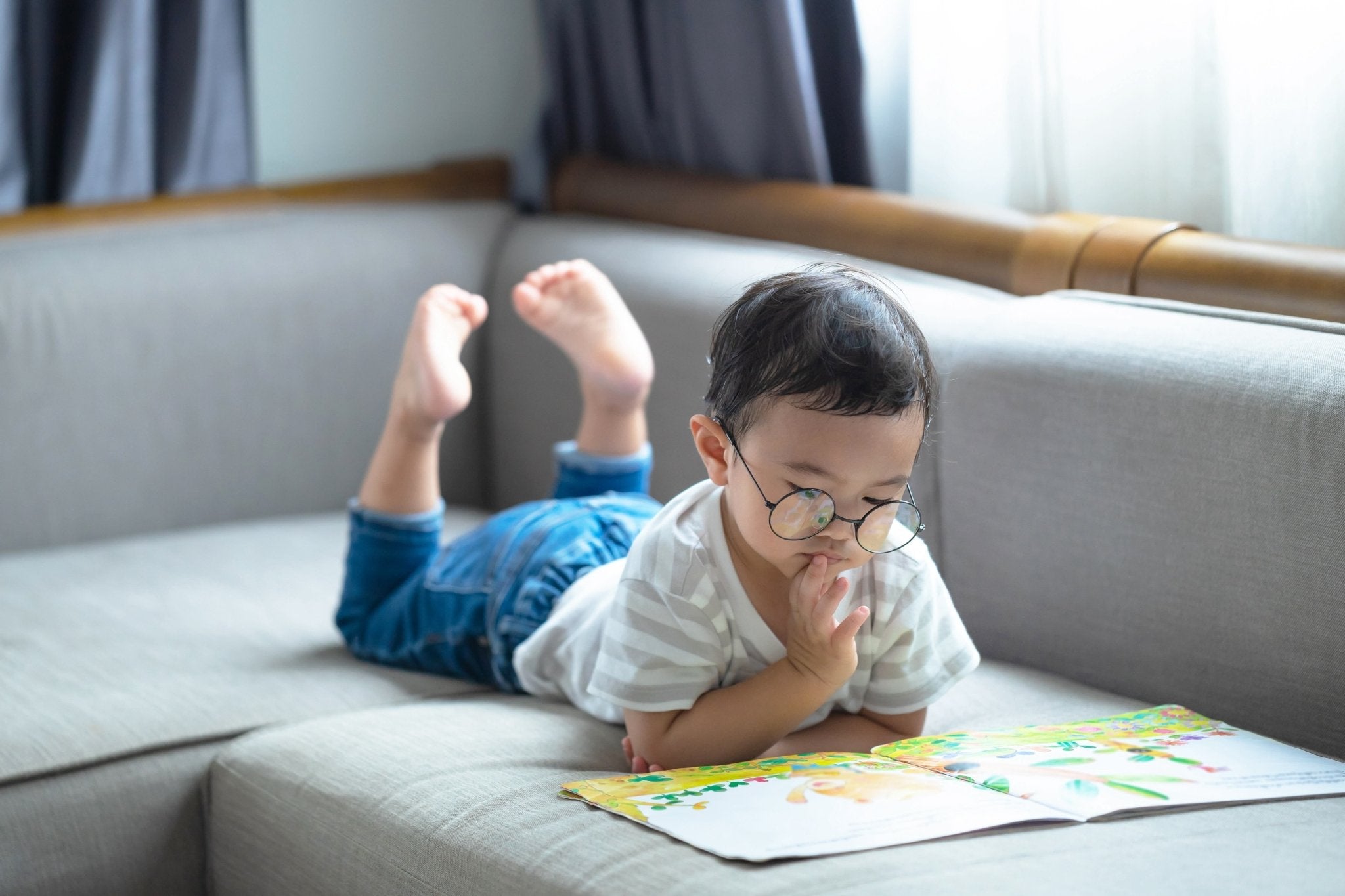
The Early Years are Essential for Brain Development and Foundational Literacy Skills: Tips for the 0-3 Years
Jacquelyn DavisHelping children aged 0-3 years old with literacy is crucial for their early development. Remember, 90% of the neural pathways (physical) brain are developed by age 5.
Here are some effective ways to support literacy development in young children:
- Read Aloud: Reading to children from a young age helps them develop language skills, vocabulary, and a love for books. Choose age-appropriate books with colorful pictures and engaging stories.
-
Talk and Listen: Engage in conversations with your child, ask questions, and listen to their responses. This helps build their language and communication skills. And if you’re wondering about what to do before your child is verbal, do the same and just know the responses will be yours to questions. For example:
- I wonder what [character in book] will do next, let’s find out.
- Where is this story set, of it’s in [place]. See the snow and the clothes of mittens and coats (point) - that tells us the story is in a cold place and (time of year).
- [character x] did [action, e.g., fell down, drank a lot of water, hit x]. I think that [hurt, he/she was thirsty, was angry because X used their toy].
- Point out features of a book: This is the cover, this is the title page, this is the spine of the book, these are page numbers, we read from left to write (use your finger to show this with the text).
- Sing Nursery Rhymes and Songs: Music and rhymes help children develop phonemic awareness and rhythm, which are important for literacy. This is also an indicator of dyslexia. While not conclusion, the inability for a child to pick up simple nursery rhymes could signal a challenge. Continue to watch this part of development and if it continues, assess your child in Kindergarten. Early detection of challenges are much easier and faster to address - and set your child on a better path from the beginning.
- Provide a Print-Rich Environment: Surround your child with books, labels, signs, and other print materials. This helps them recognize letters, words, and symbols. Point out signs, say the letters name and sound - this begins the process of sound-letter correspondence (recognizing that alphabet letters have distinct names and sounds).
- Play with Letters and Sounds: Encourage your child to explore letters, sounds, and words through games, puzzles, and activities. Point out letters in their environment and help them make connections between letters and sounds. Grab a set of magnetic alphabet letters and play with the letters on the refrigerator. You can begin with one letter and play scavenger hunt - find objects in the house that begin with [letter]. Add bath foam letters to stick on the bathtub wall and think of words that start with the sound. Order the letters, starting with a few at a time and adding. Sing the alphabet song for each batch and continue to add on. Make sure that your child does not just rote learn the song, but understands the sequence of the letters and can say it as well as sing it.
- Encourage Storytelling: Encourage your child to tell stories, use their imagination, and create their own narratives. This helps develop their storytelling skills and fosters a love for language. You can gather a set of random objects from around the house and ask them to arrange them into a sequence to make up a silly story.
- Visit the Library: Take your child to the library regularly to explore books, attend storytime sessions, and participate in literacy-related activities. A friend’s father recently passed away, and she said her greatest memory was that every Saturday morning of her childhood he took her to the library and then they went out for breakfast. Make the library visit a consistent routine in your family.
- Use Educational Tabletop Games: Try out Clever Noodle’s award-winning, super fun, highly effective reading games. Each game is designed and endorsed by national literacy experts, tested extensively in classrooms and homes, approved by teachers - and most, importantly loved by kids! Clever Noodle was born when our Founder could not find games based on the science of how children learn to read. Everything she bought was Balanced Literacy -based, an approach that experts and research have shown to be ineffective - and even harmful to children as it teaches the incorrect foundational skills, often causing reading problems. Our national literacy experts know the research, evidence and science so you don’t have to. At Clever Noodle, we think children spend too much time on screens. Cognitive scientist Maryanne Wolf (and others) has explained the negative effect of screens on reading development (see her new book: Reader Come Home). There are some educational apps we have reviewed and approve: Amira Learning and Learning Alley. As always, choose age-appropriate and interactive games that engage your child in active learning.
- Model Reading and Writing: Let your child see you reading books, writing notes, and engaging with written materials. Children learn by example, so modeling literacy behaviors is important.
- Make Reading Fun: Create a positive and enjoyable reading experience for your child by using funny voices, acting out stories, and making reading time a special bonding activity. In addition to supporting literacy development, reading, singing and talking with your child fosters social-emotional connection that also is critical for healthy development.
By incorporating these strategies into your daily routine, you can help support your child's literacy development and set a strong foundation for their future learning.




